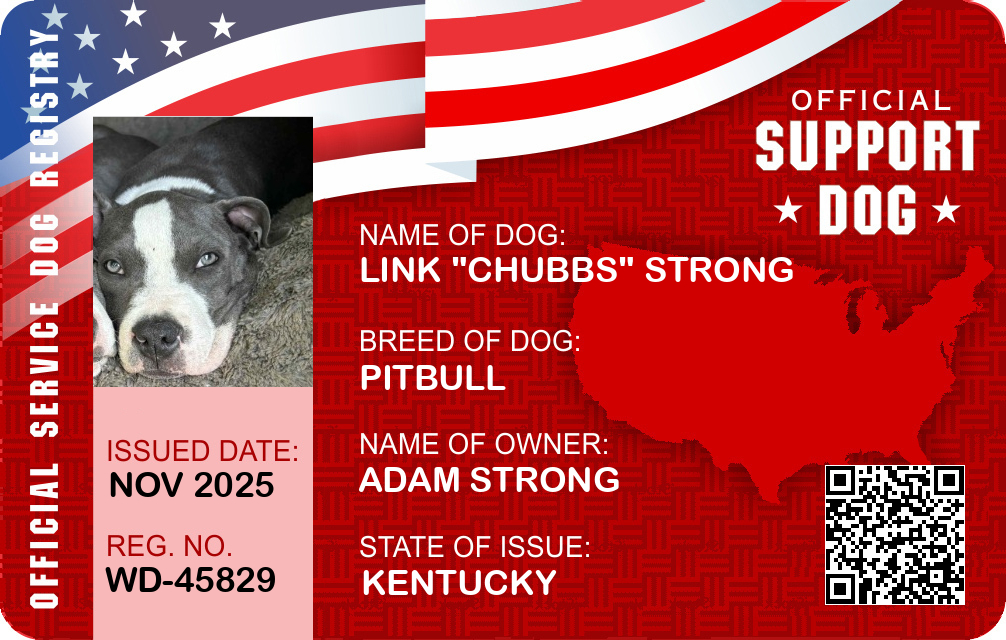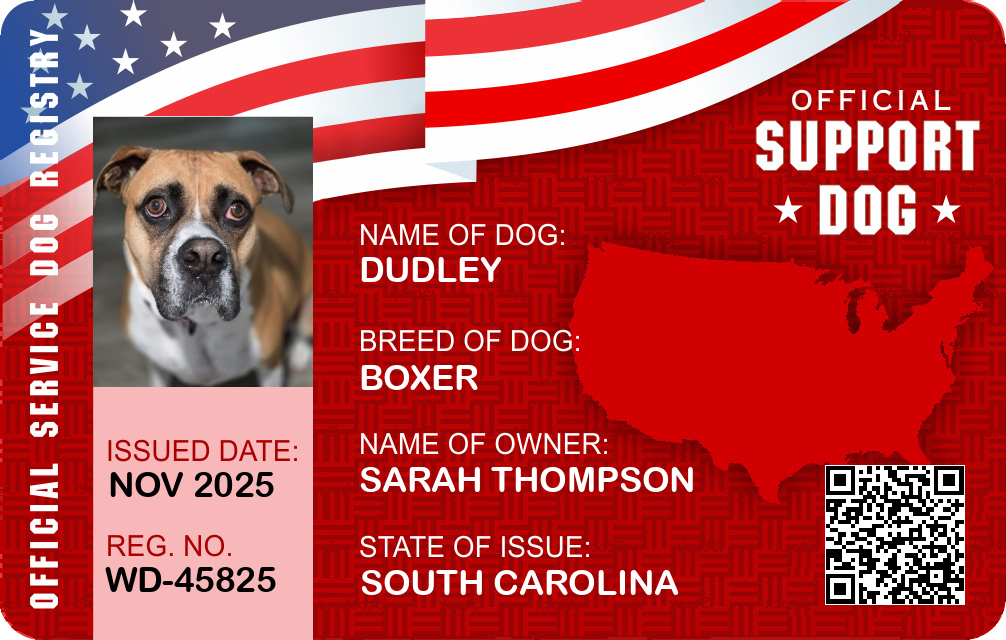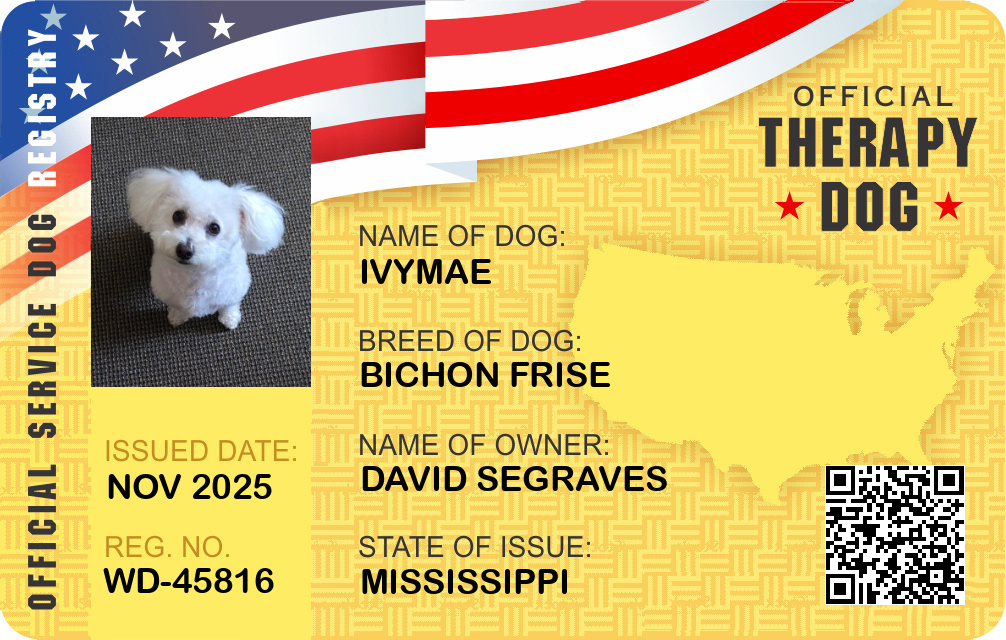Maine Emotional Support Animal Laws

Overview of ESAs and Legal Definitions in Maine
What is an Emotional Support Animal?
An Emotional Support Animal (ESA) is a pet that provides comfort and support to individuals with psychological or emotional disabilities. Unlike service animals, which are trained to perform specific tasks for individuals with physical or psychiatric disabilities, ESAs do not require specialized training. Their primary role is to offer emotional relief and companionship to their owners.
How ESAs Differ from Service Animals
ESAs and service animals differ significantly in terms of legal recognition and training requirements. While service animals, typically dogs, receive specialized training to perform tasks like guiding a person with a visual impairment or alerting someone with a seizure disorder, ESAs do not need such training. In legal terms, ESAs are recognized primarily under housing laws, while service animals have broader access rights under disability laws.
Key Federal Laws Affecting ESAs (e.g., FHA, ACAA)
Federal laws that impact ESAs include the Fair Housing Act (FHA) and the Air Carrier Access Act (ACAA). The FHA prevents discrimination in housing against individuals with disabilities, including those who require ESAs. Under this act, landlords must make reasonable accommodations for ESAs. Meanwhile, the ACAA once allowed ESAs to accompany their owners in airline cabins; however, recent amendments to the ACAA now only extend this privilege to service animals.
State-Specific ESA Laws in Maine
Housing Rights and Responsibilities
In Maine, as in other states, the Fair Housing Act mandates landlords to provide reasonable accommodations for ESAs. Maine residents with a valid ESA letter can live with their animals, even in properties with a “no pets” policy. Landlords in Maine are prohibited from charging pet fees or deposits for ESAs; however, they may charge tenants for damage caused by the animal. The tenant remains responsible for ensuring their ESA behaves appropriately and does not pose a threat or nuisance.
Public Access and Accommodation
Public access rights for ESAs in Maine are limited compared to service animals. ESAs are not granted the same public access rights under the Americans with Disabilities Act (ADA), meaning establishments such as restaurants, stores, and other public venues are not required to admit them. Businesses have the right to deny entry to ESAs, though they should accommodate service animals.
Transportation and Travel Rules
While the ACAA previously allowed ESAs to travel in airline cabins, recent changes mean that airlines are no longer obligated to accommodate them. As such, ESAs are now subject to airline pet policies, which may involve fees and specific carriage conditions. In Maine, public transportation systems are also not required to accommodate ESAs, although some may choose to do so voluntarily.
Employment and Workplace Considerations
Maine employers are not required by law to permit ESAs in the workplace. However, under the Americans with Disabilities Act, an employer should engage in a discussion about reasonable accommodations for employees with disabilities, which could include allowing an ESA on a case-by-case basis. The decision should balance the needs of the employee with workplace policies and co-worker considerations.
Documentation, Requirements, and Processes in Maine
ESA Letters and Who Can Issue Them
To qualify for an ESA in Maine, individuals must have an ESA letter issued by a licensed mental health professional, such as a psychologist, psychiatrist, or licensed clinical social worker. The letter must specify that the individual has a psychological condition or emotional disorder and that the ESA is integral to their treatment plan.
Registration, Certifications, and Common Misconceptions
There is no governmental r
Register Your Dog Instantly
egistry or official certification process for ESAs, despite common misconceptions and online businesses that offer ESA “registrations”. In Maine, having a legitimate ESA letter is the only requirement. It is crucial to avoid services that claim to "certify" ESAs, as these can often be scams.Landlord, Business, and Provider Verification Rules
Landlords and service providers can request verification of an ESA, usually in the form of an ESA letter. They cannot, however, require specific details about the individual’s condition or demand certification beyond the ESA letter. Businesses, when ESAs are concerned, do not have the same obligations and thus can refuse ESA access, focusing instead on service animal compliance.
Rights, Limitations, and Legal Risks
Rights ESA Owners Have in Maine
ESA owners in Maine have the right to reasonable accommodation in housing, which includes living with the ESA without being subject to extra fees. They also have rights to privacy regarding their medical condition, meaning inquiries should be limited to verification of the ESA's legitimacy through a formal letter.
Limits on ESA Protections and Common Restrictions
ESA protections do not extend to public places like restaurants or public transportation, nor do they automatically apply in workplaces. Businesses in Maine are not obligated under current ESA regulations to grant entry, and travel rules under the ACAA have eradicated special provisions for ESA boarding on airlines.
Penalties for Fraud or Misrepresentation
Misrepresenting a pet as an ESA can result in legal penalties, including fines and eviction from housing. In Maine, falsely claiming an animal as an ESA or service animal misleads businesses and landlords and undermines the integrity of genuine assistance animal needs. Legal frameworks allow for punitive action in such cases to deter fraudulent claims.
Practical Guidance for ESA Owners in Maine
How to Qualify for an ESA Legitimately
To qualify for an ESA in Maine legitimately, individuals should consult with a licensed mental health professional to assess their need for such support. Obtaining an ESA letter that outlines this necessity is essential before approaching landlords or attempting to seek accommodations.
How to Talk to Landlords, Airlines, and Employers
When discussing your ESA with a landlord, focus on providing your valid ESA letter and ensuring them that your ESA will not cause a nuisance or damage. For airlines, understanding and adhering to the current pet policy is vital. In the workplace, initiate a dialogue with human resources about potential accommodations, providing your ESA letter if necessary.
Tips for Avoiding Scams and Legal Problems
To avoid scams, remember that there is no official ESA registry, and services offering such registration are fraudulent. Always verify the credentials of any mental health professional issuing an ESA letter. When asserting your ESA rights, ensure communication remains transparent and backed by appropriate documentation.
Summary of ESA Laws in Maine
- Regional Scope: ESAs in Maine are primarily governed by housing laws, as public and transport access is limited.
- Documentation: A legitimate ESA letter from a licensed mental health professional is required.
- Housing Rights: ESAs must be accommodated in housing, without pet fees.
- Public and Travel Limitations: ESAs have no automatic access rights to public spaces or airlines.
- Misrepresentation Penalties: Legal fines can be imposed for falsifying ESA status.
- Qualifications and Interactions: Legitimize ESAs through licensed professionals and maintain open communication with landlords and employers for compliance.











